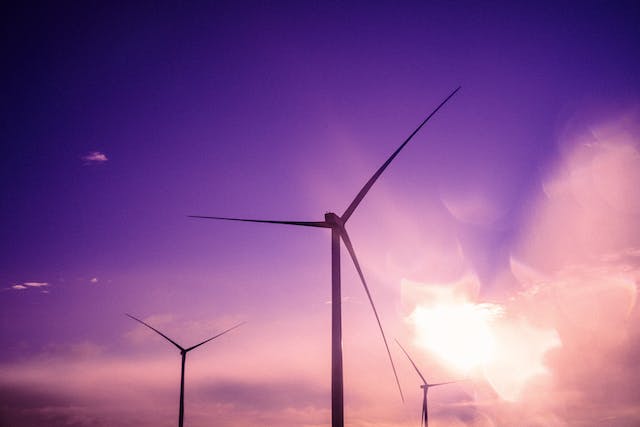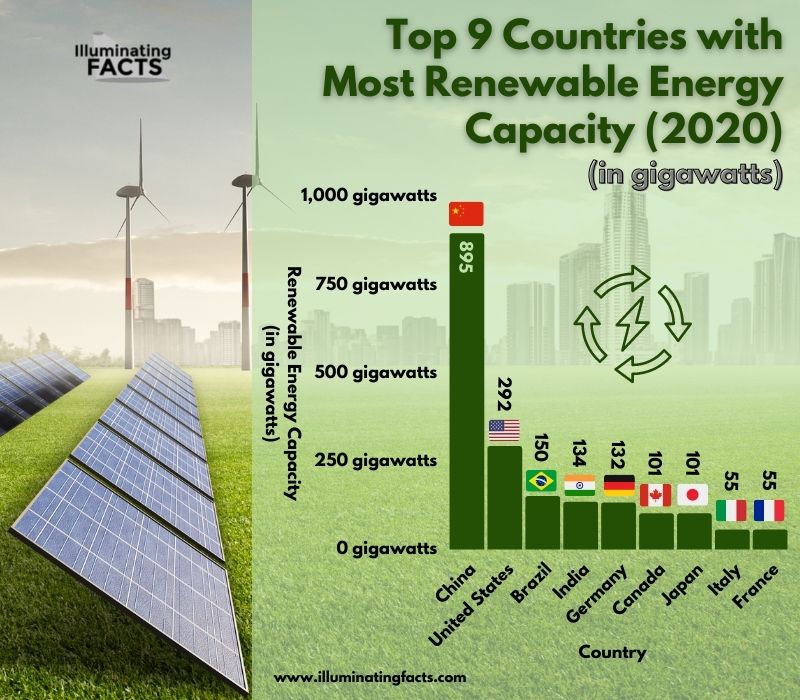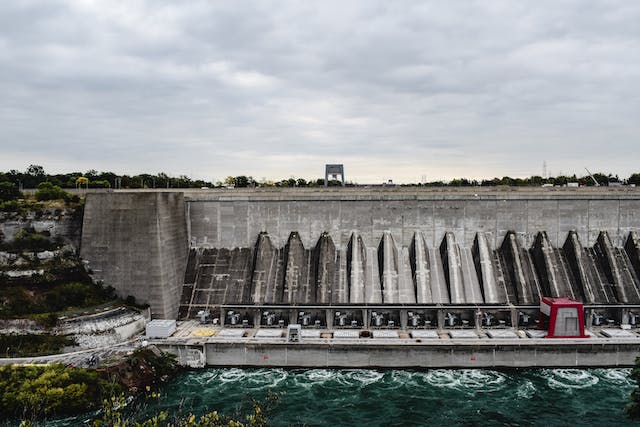Survival prep involves evaluation and preparation of supplies, skills, and plans in order to respond to emergencies. The preparedness and protection of your family during times of emergency should never be taken lightly. It is a practice that requires careful consideration when selecting survival gear.
Having the right power sources is an essential part of an effective survival plan. When the traditional means of power are not available, you need a reliable alternative solution that keeps your home up and running. For those who are trying to battle the unforeseen events of their daily lives, having alternative power sources is a must.
With so many options available out there, finding the right one for your needs is challenging. This post covers different alternative power sources, their advantages and disadvantages, and a list of important factors to consider.
Clean Power Sources
Before diving into the different types of alternative power sources for survival prep, it’s important to understand how they work. Alternative power sources refer to technologies that are not traditionally used, but are capable of providing an alternate source of energy. These sources utilize various renewables such as solar, wind, geothermal, and hydropower, as well as conventional energy sources. These power sources differ in the type of energy they generate and the applications they are best suited for.
Solar Power
Solar power is one of the most commonly used alternative power sources. It is a reliable source of renewable energy that countries all over the world use . It involves using photovoltaic or thermal collectors which convert sunlight into usable electricity or heat. The photovoltaic cells in solar panels collect photon particles from the sun and convert them into electricity, which is then stored in batteries for your usage.
Advantages
Solar power is one of the most cost-effective forms of renewable energy. People are commonly using it as a secondary power source because it can help reduce electricity bills and reduce their carbon footprint. Solar panels are also easy to install, require little maintenance and can last for many years without any problems. Additionally, investing in a solar energy system also brings benefits like tax credits (depending upon where you live).
Disadvantages
The main disadvantage to solar energy is that it is still relatively expensive, even though the cost has decreased over the years. Solar panels can take up lots of space depending on what type of system you are installing. These alternative power systems can also be affected by different weather conditions like rain or overcast days which may result in lower energy output than you originally expected.
Wind Power
Wind power is another popular alternative energy source that utilizes wind turbines to generate electricity. It involves harnessing natural wind currents and turning them into useful forms of electricity. This type of renewable energy has been used since ancient times and is still used today as a cost-effective form of alternative power.
Advantages
Wind power has several advantages. It uses minimal land area since wind turbines are generally installed offshore or on rooftops and does not produce any emissions or pollution.
Moreover, the price of installing a wind turbine has dropped in recent years, making it an attractive option for those looking for an alternative source of energy for survival or secondary power needs.
Disadvantages
The main disadvantage to wind energy is that its availability is dependent on location. Areas with low wind conditions will struggle to produce enough energy. Wind turbines can also be very noisy and dangerous to birds and bats as they may mistake them for perching spots or get caught up in their blades.
Hydropower
Hydropower involves converting water’s kinetic energy into electricity by capturing water flowing through dams or through various other hydraulic systems like pipes or turbines.
Hydropower plants provide one of the most consistent sources of renewable energy but are limited mainly by geography. They can be installed in locations where high volumes of water is flowing nearby.
Advantages
Hydropower plants provide some advantages including clean and sustainable energy. Another advantage is availability, meaning users do not have to wait for sunny days or heavy winds for generating electricity.
Disadvantages
Hydropower can be quite expensive to install even at a small scale due to complicated engineering requirements. These include building dams, setting up transmission lines, maintaining channels, etc. Moreover, hydropower’s supply potential relies heavily on weather patterns meaning, dryer climates may have trouble producing enough water needed for generating electricity all year long. Lastly, hydropower plants can sometimes affect local wildlife habitats disrupting their natural behavior.
Factors to Consider When Choosing Alternative Power Sources
In the event of a natural disaster or prolonged power outage, having reliable and alternative power sources is essential in maintaining a sense of normalcy and comfort. Selecting an alternative power source is no small task, when it comes to off-grid living. There are many things to take into account including:
Purpose of the Power Source
The first step when selecting alternative power sources is to consider the purpose. Do you need energy to light up a campground or for running essential appliances like a refrigerator? If so, then a gas-powered generator or solar-powered system might be your best option.
On the other hand, if you’re looking for an emergency back-up during a power outage, then investing in a multiple battery system or a wind turbine might make more sense.
Power Output Needed
Once you know why you need an alternative power source, you can then narrow down your choices by determining the amount of power output that’s necessary. It is important not to underestimate this factor. If the system can’t produce to meet your needs, then it won’t serve its purpose in an emergency situation. Consider wattage (W) or volt amperes (VA) output ratings when shopping around for generators, batteries, and solar panels and match it with your own power requirements.
Availability of Fuel Sources
When selecting alternative power sources, you should also think carefully about the different fuel types and their availability. This helps determine how easy it will be to keep your system running in an emergency.
If you opt for a generator or battery system, then make sure adequate supplies are within reach. Similarly, if you have opted for solar, wind, or hydropower make sure there are enough resources nearby to keep your system sustained.
Durability and Reliability
When selecting survival gear and alternative power sources, it pays to invest in products made with high-quality materials. Such products can stand the test of time under any conditions. You never know when you might end up needing them.
Be sure to research warranties and read online reviews thoroughly before making your purchase so that you know your investment will be worth it in the long run.
Portability
If you plan on using your alternative power source off-grid or away from home for any length of time, then it should be easy to move around without too much difficulty. This is especially important if your system will require regular maintenance or adjustments. Generators and solar panel systems are typically the most portable options as they are easy to disassemble and can be moved wherever needed.
Cost
Last but not the least; cost is perhaps the most important consideration when selecting alternative power sources. It is best to invest in products that offer good value for the money rather than opting for the cheapest options, which don’t last that long and offer poor performance, which are the last things anyone would want in an emergency situation.
Conclusion
Whether it is powering basic necessities like lights, or keeping essential electronics running during a prolonged power outage, having a reliable alternative energy source at your disposal is essential during an emergency. So it pays to invest thoughtfully when selecting alternative power sources like solar, wind, geothermal, or hydropower.
Conduct careful research on factors like power output needed, availability of fuel sources, durability/reliability of materials used, portability requirements, and cost when deciding on the best equipment for your needs. With careful planning and selection process, you will be able to feel more confident and prepared in rough times.



